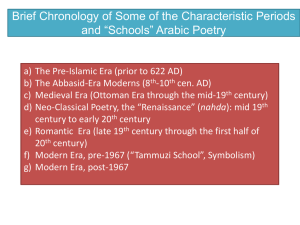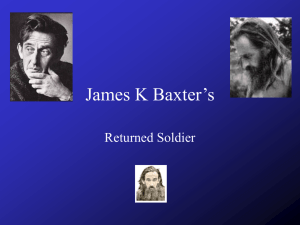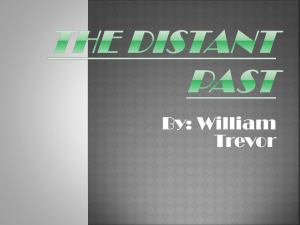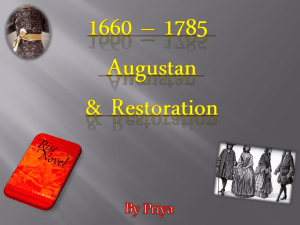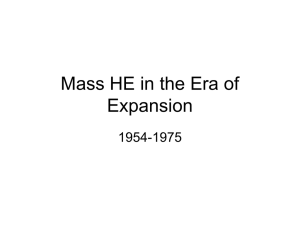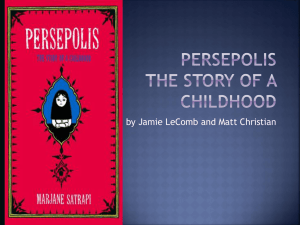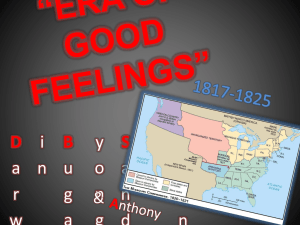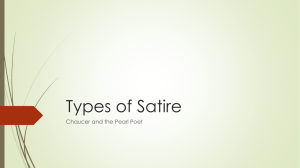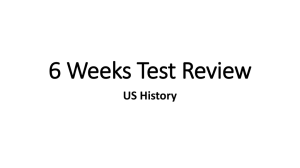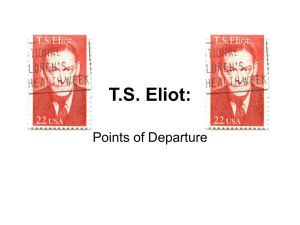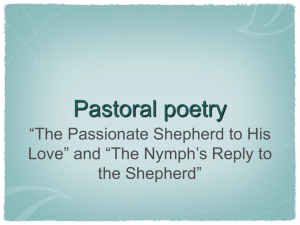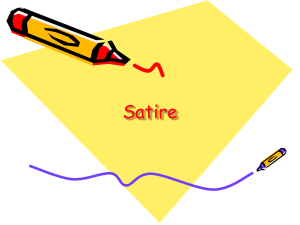Restoration & 18th Century England: History & Literature
advertisement
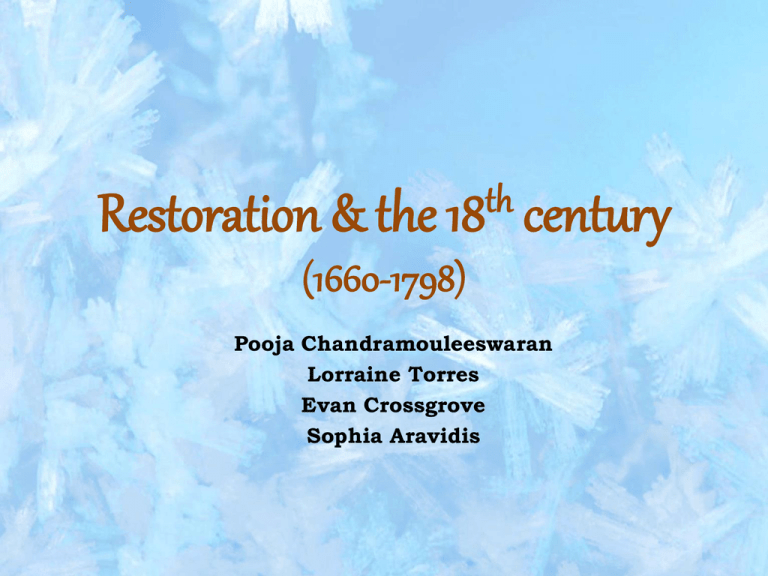
th Restoration & the 18 century (1660-1798) Pooja Chandramouleeswaran Lorraine Torres Evan Crossgrove Sophia Aravidis 18th Century History • England in 1660 was a nation that had just gone through 20 years of civil war. • These wars lead to the revolutionary precedent that an English Monarch cannot govern without Parliamentary consent. • Early throughout King Charles Stuart's reign in the 1660's the people of England suffered through two major catastrophes: • First in 1665 a plague that killed over 70,000 people in London alone. • Then only a year later the great fire of London left two-thirds of the population homeless. • These two calamities seemed to the superstitious to be Divine will angered by the recent rebellion and regicide. • In 1688, the Glorious Revolution established a Rule of Law and Parliamentary Democracy. • The Act of Union 1707 created a political alliance under which England's Parliament united with Scotland's Parliament to form the Parliament of Great Britain. • ·The years between 1660 and 1790 are divided into three different literary eras: • • • The first from 1660 to 1700 was knows as the Restoration and is known to be greatly influenced by John Dryden. Dryden wrote comedy, blank verse tragedy, heroic plays, ode and satire's. But his greatest contribution was his simple and direct critical essays. All of his perceptions including his critical essay examples and poetry dominated this era. · The years from 1700 to 1745 are known as the Age of Satire and were dominated by Jonathan Swift and Alexander Pope. This era was an era of literary wit, principally concerned with social relationships and civilization, because of this it was often times very critical and to a degree satiric. Many works in this era are mock heroic and humorous representation of classics. · The third era from 1745 to 1790 is known as the Age of Johnson, or the Age of Sensibility. As can be inferred, Samuel Johnson greatly influenced this time period, but it is also known for a new type of poetry. Writers of this era focused on reason, intellect, balance and order, as well as a respect for great classical writers. However, this era is most renowned for the creation of a modern new literary form, the novel. Non Poetry Movement • • • • Tensions in Parliament led to an overall criticism in everything. -A famous leader against loyalty was Edmund Burke. Edmund Burke was a political leader in the Whigs party and argued for elections more often than 7 years. He was strongly against a revival of absolutism. Absolutism is when the king is in the ultimate governing body of the state. This caused the fear in parliament The News Paper was highly population. Ex. Steele’s Spectator. -Was essential to read before stepping outside in the morning, in 18th century England. It’s function was to provide the reader with an educational spin on advice and talking points. It expressed how to communicate with others in a polite manner. It promoted not just courtesy, but established proper family and marriage functions. It also was a witty tempered read, as it tried to bring philosophy to society. Literature was aided by Samuel Johnson’s new dictionary. Instead of a dictionary that would say the meaning of the word, that would come later on, it focused on how to properly use a phrase or word. Satire is a literary genre in which a person’s actions are censured to display irony and ridicule. Sometimes, it can be taken as humorous, but the main means of satire is to attack someone with wit. The attack is often meant to be used as constructive criticism. -Alexander Pope's The Rapes of the Lock, treats the subject demeaning to express disparity in the dignity or loftiness of the subject being critiqued Poetry Movements • Characterized by gloomy elements, many scenes of darkness and death • In the last years of the period, poems began to take on a more contemporary feel as a shift towards realistic ideas pervaded the society. • Many poets like Jonathan Swift focused on the political movements of the time as a new focus for poetry. Mock poetry became popular as a way of satirizing the “plight” of the wealthy nobility. Visual Art and Music Focused on intellectuality and knowledge Neoclassicism: revival movement of art that focused on drawing the essential classics of art in Rome and Greece during the 1780s through 1840s. Started in 1760 but reached peak in 1780s Came as a result of Rocco art and Baroque art Neoclassicism: spirit of nationalism, sacrifice, courage, and classic themes in Roman and Greek art. Stimulated by: the increase of scientific knowlege, opposition to Rocco and Barque, archaeological excavations of Roman artifacts, and published works. Economy boom leads to an ineterest in entertainment. Famous composers: Abel, J.C. Bach, Geminiani, Pepusch, and George Frederick Handel.
